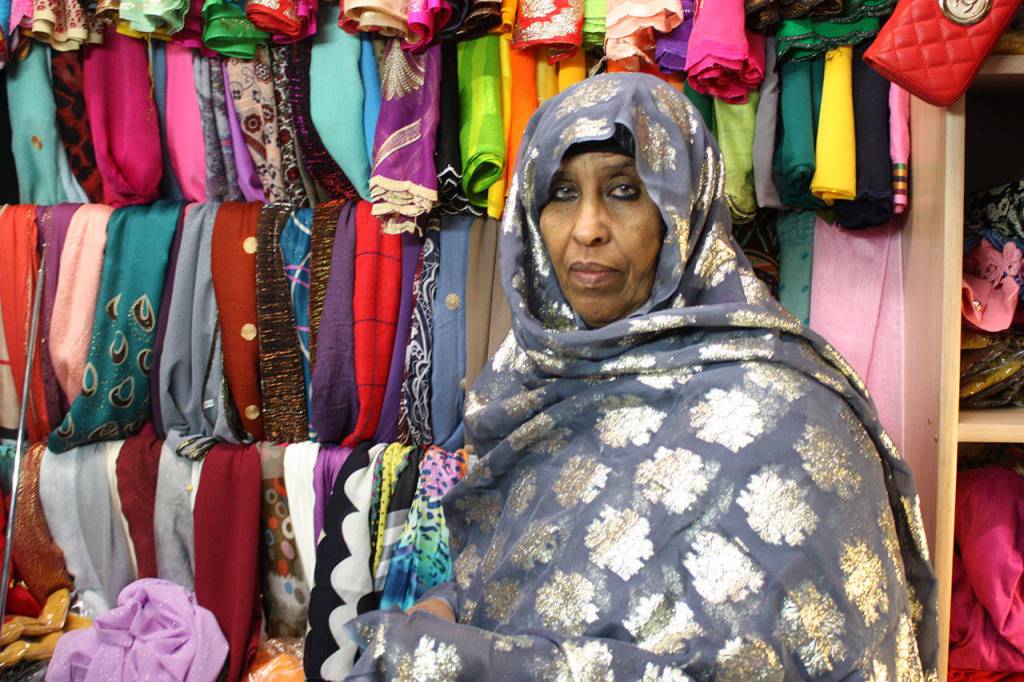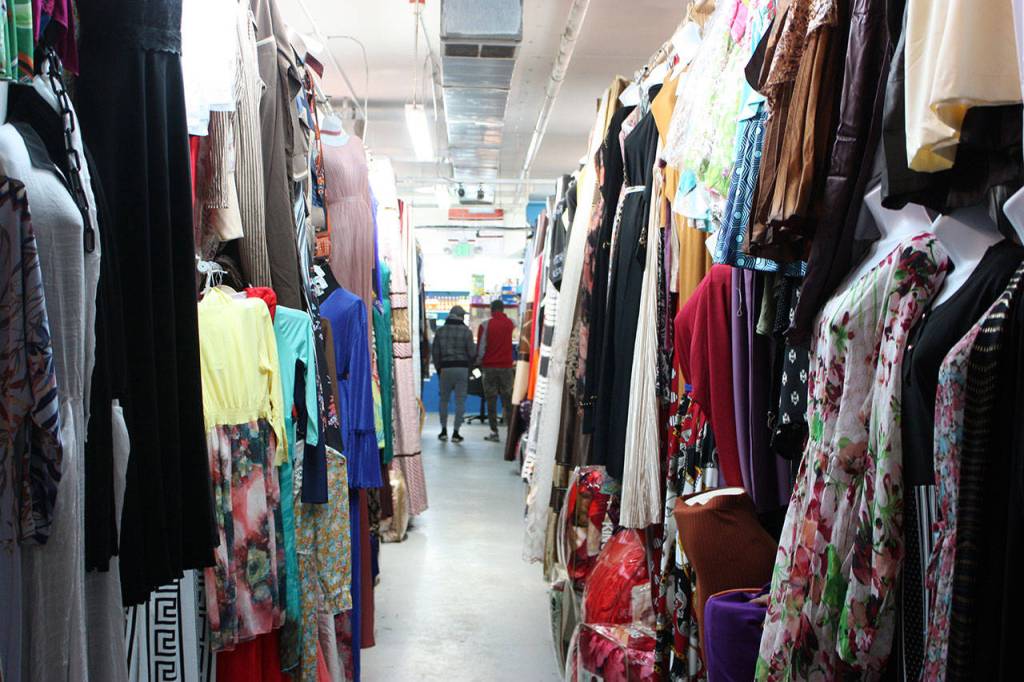Somali community faces SeaTac displacement
Published 1:40 am Thursday, February 14, 2019




After more than a decade, members of SeaTac’s Somali community believe the city is close to breaking up their community as it redevelops a key commercial center.
SeaTac Center is a long, two-story building north of the airport on the city’s border with Tukwila and kitty-corner to its light-rail station, making it prime real estate to be redeveloped on a plot of land that the city of SeaTac has had its eyes on for more than a decade. The building also serves as a cornerstone of the local Somali community, and in the past 10 years, dozens of small businesses have moved into an indoor market nestled in the building’s center.
Inside, traditional Somali and East African garments hang from the walls and the smell of perfumes, fragrance, and deli food mix as people make their way through the small hallways looking for clothes, something to eat, and even help filing taxes at a small accounting office, which was particularly busy on a recent evening. SeaTac bought the building in 2010 in such a backhanded manner that it ended up losing an $18 million lawsuit filed by the building’s former owners. Even still, the city resold it last December to the Spokane-based Inland Group to be turned into a mixed-use development.
Nadifa Yusef is one of the business owners who rents a stall in the indoor market. The Somalian immigrant, a mother of five, has worked at her shop for 10 years. To support herself and her children, Yusef relies on her store, where traditional Somali dresses called dirac coat the walls. Yusef said that if the city succeeds in knocking down the building without providing relocation assistance, she won’t have any place to do business and support herself. “What we’re asking is for our government to act with compassion, and act with heart,” Yusef said. “Don’t just break up our community and leave it at that as if we’re garbage.”
For context, it’s helpful to know a bit of the building’s history, including the $18 million lawsuit. During a three-month civil trial, the jury found that SeaTac officials had sabotaged the previous owner’s development plans, “strong-armed them into giving up their property and then violated the state’s Public Records Act by withholding city emails and documents,” reported The Seattle Times. The case was resolved in 2016. The judge found that the mayor in power at the time, Gene Fisher, intentionally wanted to secure the building, build condos, and force out the Somali community from “his neighborhood.” The trial judge stated in his decision that the city’s lack of honesty and transparency was extreme, and that “the city violated that duty so many times I’ve lost count.”
Regardless, the current SeaTac City Council in December voted 5-1 to approve the sale and redevelopment plans. The vote came shortly after the city’s only councilmember from the Somali community, Amina Ahmed, died in a car accident. SeaTac’s City Council is almost entirely white in the minority- majority city.
Despite its demographics, city officials have been caught trying to create a “tactical map” of Muslim residents in the city, and SeaTac Mayor Erin Sitterley has voiced her support on Twitter of Trump’s immigration policies and opposition to sanctuary cities, The Stranger reported. She has also retweeted claims that refugees migrating to Europe was a “Muslim invasion.” At press time, Sitterley had not responded to Seattle Weekly’s emailed questions.
Adar Adan, one of the market’s main tenants, sublets space to many of the small stores in the Somali portion of SeaTac Center. Adan said she believes the city is still actively trying to displace them. “They just don’t want folks who look like us here,” she said standing inside her shop.
Nearly every merchant contacted in this story worked with Hamdi Mohamed as a translator. Mohamed is a community advocate and staffer for U.S. Rep. Pramila Jayapal (D-WA). Mohamed said the city never sent an interpreter to the center to speak with tenants in Somali. Asked to comment for this story, SeaTac spokesperson Kyle Moore referred to development documents available online and did not respond to further requests.
Adan said the city is not providing relocation assistance, and in response the Somali community has self-organized and filed a lawsuit against the city seeking financial and relocation assistance. A prior lawsuit filed against Tukwila won other Somali businesses across the street protections and relocation assistance after the city of Tukwila used eminent domain to acquire their building for a new jail. Adan is hoping they will be awarded something similar. “Now that we’re at a place where we helped build SeaTac, we’re being displaced,” Adan said. “We’re asking for justice through that lawsuit, we’re asking that they treat us fairly.”
The SeaTac Center saga is a prime example of the displacement that is happening across King County. As the cost of living has increased in recent years, immigrant and refugee communities have found safe havens in South King County in places they could afford to build a life. Those once-affordable communities have now become more enticing to developers and cities looking to build housing and rake in profit.
The city sold SeaTac Center to the Inland Group for $15.5 million to build 665 units and amenities close to the light-rail station. It would include 30,000 square feet of commercial space, around half of what the current center holds. Of the housing units, around 385 would be marketed to people earning 60 percent of the area median income or less. Mohamed said local governments often don’t get ahead of displacement and end up displacing communities while redeveloping areas. “It is intentionally displacing them, and this is something we’ve seen a lot of places in the country,” she said. “We need to be more thoughtful of what that process really looks like.”
Margaret Cary, an activist with the Working Families Party of King County, had a somewhat less optimistic view of the situation. “The majority of the City Council members could care less. They just want to basically see this property off their hands, they want the $15 million and they’re not really interested, nor have they shown any political will to preserve the immigrant businesses, the majority of which are owned by women,” Cary said.
Many of the business owners in the market have spent years acquiring and building their wares. As the six-month contingency period works its way toward the start of construction this fall, store owner Yusef said she feels silenced. “I’m very worried and very anxious,” she said. “I need help.”
This story originally appeared in the Seattle Weekly, a sibling paper of The Daily Herald.








